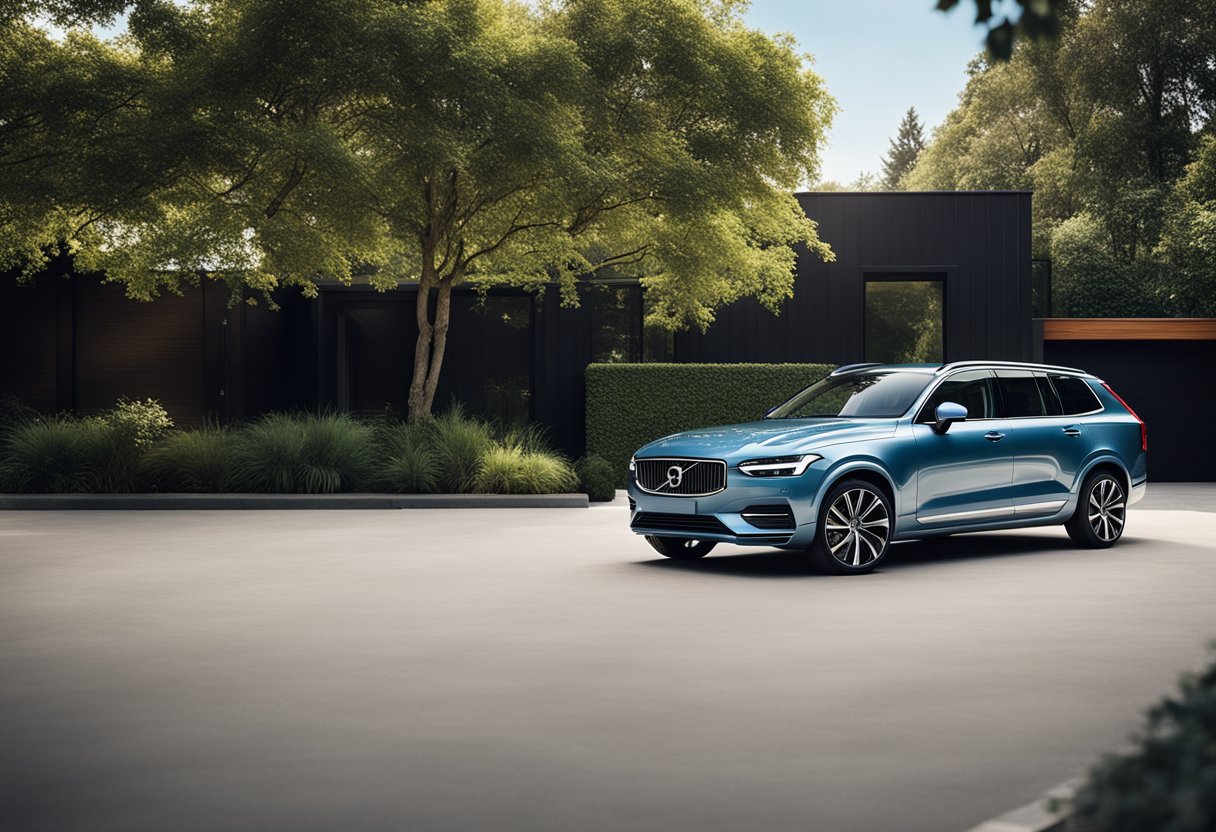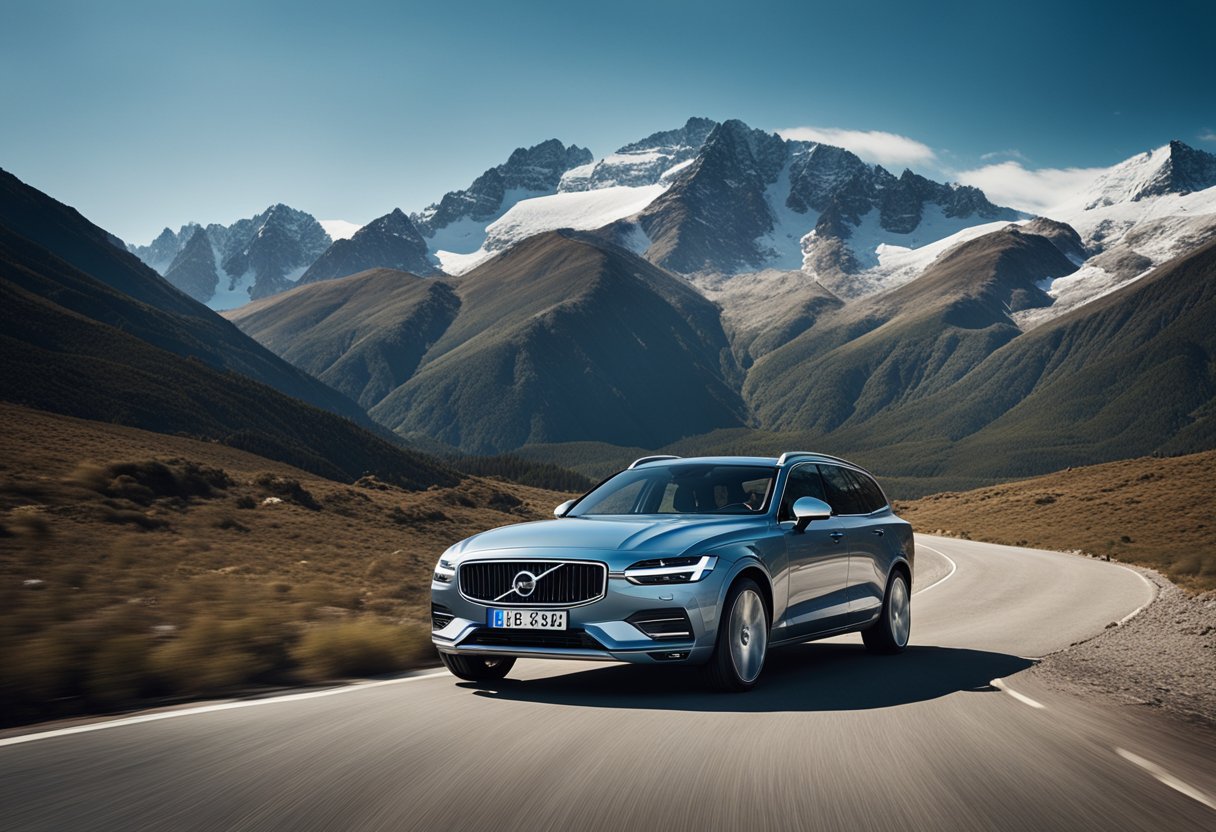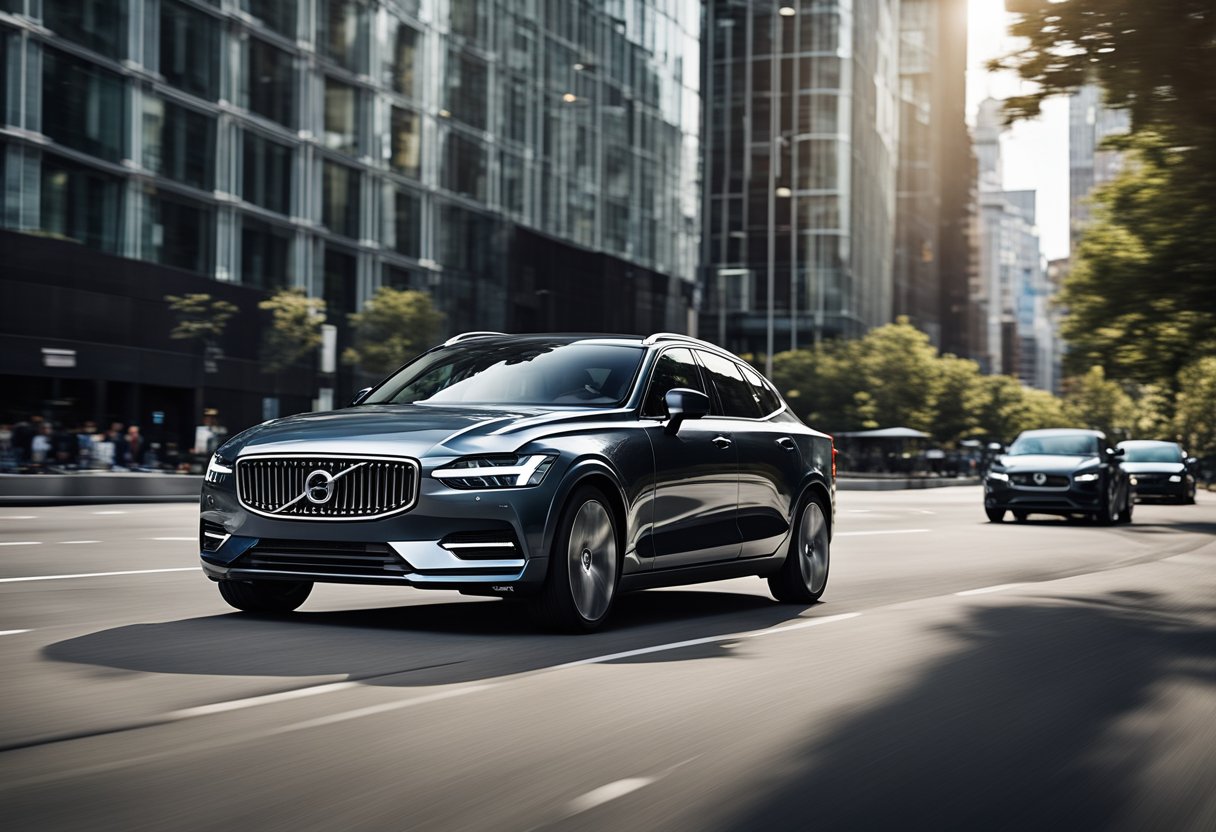Many car buyers wonder about the companies behind their favorite brands. If you’re a fan of sleek Scandinavian design and safety features, you might be curious about Volvo’s corporate ownership.
Volvo Cars is currently owned by Zhejiang Geely Holding Group (commonly known as Geely Holding), a Chinese multinational corporation. Geely Holding acquired the Swedish automaker from Ford Motor Company in 2010.

The ownership story of Volvo has several interesting chapters. Founded in Sweden in 1927, Volvo operated as part of the Swedish Volvo Group until 1999, when Ford purchased the car division. After about a decade under American ownership, Ford sold Volvo Cars to Geely during the economic downturn.
In 2021, Volvo Cars became publicly listed on the Nasdaq Stockholm stock exchange, though Geely continues to maintain majority ownership.
Despite the changes in ownership, Volvo has maintained its reputation for safety and Scandinavian design while expanding globally. The company now operates manufacturing facilities in several countries while continuing to develop innovative vehicles that stay true to its core values.
Key Takeaways
- Volvo Cars has transitioned from Swedish to American to Chinese ownership, with Geely Holding being the current majority owner since 2010.
- Despite changing ownership, Volvo has preserved its distinctive Swedish identity and commitment to safety and quality.
- Volvo became publicly traded in 2021 while maintaining manufacturing facilities across multiple countries and focusing on innovation in the automotive industry.
History of Volvo Cars Ownership

Volvo Cars has changed hands multiple times throughout its history, moving from Swedish origins to global ownership. The company’s journey includes being part of the original Volvo Group, a period under American ownership, and its current status under Chinese management.
Origins within the Swedish Volvo Group
Volvo Cars began as part of AB Volvo, founded in 1927 in Gothenburg, Sweden. The company established itself as a premium automobile manufacturer known for safety and durability.
For most of the 20th century, Volvo Cars was integrated within the larger Volvo Group, which also produced trucks, buses, and other industrial equipment. This Swedish ownership gave Volvo its distinctive Scandinavian approach to design and engineering.
By the late 1990s, AB Volvo began focusing more on its commercial vehicle operations. The company’s leadership decided to separate its passenger car division from its commercial vehicles business to allow each to develop their specialized markets.
Ownership Transition to Ford Motor Co
In 1999, a significant change occurred when AB Volvo sold Volvo Cars to the Ford Motor Company. This made Volvo part of Ford’s “Premier Automotive Group” (PAG), which included other luxury brands like Jaguar, Land Rover, and Aston Martin.
Under Ford’s ownership, Volvo Cars gained access to greater resources and global distribution networks. Ford invested in modernizing Volvo’s production facilities and expanding its model lineup.
However, during the global financial crisis of 2008, Ford faced serious financial difficulties. The American automaker began selling off its luxury brands to improve its balance sheet and focus on its core Ford and Lincoln brands.
Acquisition by Zhejiang Geely Holding
In 2010, Volvo Cars was purchased by the Chinese conglomerate Zhejiang Geely Holding Group, commonly known as Geely. This marked a new era for the Swedish automaker under Chinese ownership.
Geely’s approach differed from Ford’s by allowing Volvo to maintain significant autonomy while providing substantial investment. Under Geely’s ownership, Volvo has:
- Developed new vehicle platforms
- Expanded its global manufacturing footprint
- Committed to electrification and sustainability initiatives
- Returned to profitability
In 2021, Volvo Cars became publicly listed on the Nasdaq Stockholm stock exchange, though Geely Holding retained majority ownership. This arrangement has allowed Volvo to access public capital markets while maintaining its relationship with Geely.
Today, Geely owns over 15 other vehicle makers besides Volvo, making it a significant player in the global automotive industry.
Volvo Cars Under Geely Holding
Volvo Cars has been owned by Zhejiang Geely Holding Group since 2010, marking a significant turning point in the Swedish automaker’s history. This acquisition has transformed Volvo’s operations while preserving its core values.
Impact on Corporate Culture
When Geely acquired Volvo, many industry experts wondered if the Chinese ownership would change Volvo’s distinctly Swedish identity. Interestingly, Geely took a hands-off approach that respected Volvo’s heritage.
The company continues to operate as an autonomous firm despite Geely’s controlling stake. This autonomy has allowed Volvo to maintain its focus on quality, safety, and environmental responsibility.
Geely’s investment provided much-needed financial stability while allowing Volvo to preserve its unique corporate values. This balance has proven successful, as Volvo’s brand reputation has remained strong.
In 2021, Volvo Cars was publicly listed on the Nasdaq Stockholm stock exchange, though Geely Holding still maintains majority ownership. This move gave Volvo more independence while keeping Geely’s backing.
Advances in Safety and Innovation
Under Geely’s ownership, Volvo has accelerated its innovation efforts, especially in safety technology and electrification. Volvo’s commitment to safety has grown even stronger with new investments.
The company pledged that no one would be seriously injured or killed in a new Volvo by 2020. While this ambitious goal wasn’t fully achieved, it drove significant advances in safety systems.
Volvo pioneered features like pedestrian detection, run-off road protection, and advanced driver assistance systems. These innovations have kept Volvo at the forefront of automotive safety.
In the electrification race, Volvo made bold commitments. They announced all new models would have an electric motor starting from 2019, with plans to become fully electric by 2030.
This push toward sustainability and innovation shows how Geely’s resources have helped Volvo pursue ambitious technological goals.
Expansion of Production Facilities
Geely’s ownership brought major changes to Volvo’s manufacturing footprint, especially in China. Recently, Volvo Cars signed an agreement to acquire Geely Holding’s stake in their joint ventures in China, taking full ownership of its Chinese operations.
Volvo has expanded production globally with new facilities in China and the United States. The Chengdu plant opened in 2013, followed by facilities in Daqing and Luqiao.
In 2018, Volvo opened its first U.S. manufacturing plant in Charleston, South Carolina. This global manufacturing network has helped Volvo increase production capacity while reducing shipping costs.
These expanded facilities support Volvo’s growth strategy and have created thousands of jobs worldwide. The production expansion demonstrates how Geely’s investment has helped transform Volvo from a regional premium brand into a truly global luxury automaker.
Global Operations

Volvo Cars has established a global manufacturing footprint that spans multiple continents with production facilities in Europe, Asia, and North America. The company strategically positions its plants to serve key markets while maintaining its Swedish heritage.
Volvo Cars Production Network
Volvo’s global production network reflects its evolution from a purely Swedish manufacturer to a truly international automotive company. While maintaining strong ties to its homeland, Volvo has expanded production to meet worldwide demand.
The network includes factories in Sweden, Belgium, China, and the United States. Each plant specializes in particular Volvo models or components, creating an integrated global manufacturing system.
In Sweden, Volvo Cars maintains its historic connection through its headquarters in Torslanda, Gothenburg. This facility produces several of the company’s flagship models and serves as the heart of Volvo’s operations.
The company also operates component plants in Skövde (engines) and Olofström (body components), continuing its long manufacturing tradition in Sweden.
Major Car Production Plants
Volvo operates several key manufacturing facilities around the world:
European Plants:
- Torslanda, Sweden – Produces XC90, XC60, V90, S90
- Ghent, Belgium – Manufactures XC40, V60, V40
Asian Plants:
- Daqing, China – Produces S90, S60
- Chengdu, China – Manufactures S60, XC60
- Shanghai, China – Production of various models
North American Plant:
- Charleston, South Carolina, USA – Manufactures S60, eventually XC90
Volvo has been strengthening its position in China by taking full ownership of its Chinese joint ventures, giving it complete control over its manufacturing operations there.
Key Markets and Largest Market
Volvo Cars sells its vehicles in approximately 100 countries worldwide, but several markets stand out as particularly important for the company.
China has emerged as Volvo’s largest market, which helped drive the company’s decision to establish multiple manufacturing facilities there. This represents a significant shift from Volvo’s traditional European focus.
The United States remains a crucial market for Volvo, especially for its SUV lineup including the popular XC60 and XC90 models. The Charleston plant was built specifically to serve North American customers.
Europe still forms Volvo’s home territory with strong sales in Sweden, Germany, and the UK. The company maintains a particularly loyal following in these markets where its reputation for safety and Scandinavian design is highly valued.
Volvo’s Commitment to Strength and Durability

Volvo has built a global reputation on creating vehicles that prioritize safety through robust engineering and durable construction. This commitment extends across their entire product lineup, from consumer cars to heavy-duty industrial equipment.
Volvo’s Reputation for Robust Vehicles
Volvo cars are known for exceptional build quality, using premium materials that contribute to their durability and longevity. Many owners enjoy their Volvos for years beyond the average car lifespan.
The company’s engineering philosophy places strength at the core of design. Their vehicles feature reinforced passenger compartments and strategic crumple zones that absorb impact energy.
Volvo pioneered the three-point safety belt in 1959, showing their early focus on building stronger, safer vehicles. This invention has saved over one million lives globally.
The brand continues this tradition today with high-strength boron steel comprising up to 40% of their modern vehicle structures. This material is five times stronger than regular steel!
Advancements in Truck, Bus, and Construction Equipment
Volvo’s strength-focused engineering extends far beyond passenger cars. Their trucks division has developed some of the most reliable heavy-duty vehicles in the transportation industry.
Volvo Trucks leads with innovations like I-Shift transmission technology. This technology improves durability by reducing strain on driveline components. Their FH series trucks are built to handle loads exceeding 44 tons while maintaining structural integrity.
In the construction sector, Volvo equipment is designed for extreme conditions. Their excavators feature reinforced booms and arms that withstand tremendous pressure and repetitive stress.
Volvo buses incorporate similar durability principles. Their city and intercity buses are built with corrosion-resistant materials that extend operational lifespans. Their chassis are designed for constant heavy loading and unloading cycles.
The Volvo Brand in the Modern Day

Since being acquired by Geely Automobile in 2010, Volvo Cars has transformed itself while maintaining its core values of safety and quality. The company continues to evolve in response to industry trends and environmental concerns.
Adapting to Changes in the Automotive Industry
Volvo Cars has embraced technological innovation to stay competitive in today’s market. They’ve committed to electrification, announcing plans to become a fully electric car company by 2030. They will phase out all cars with internal combustion engines.
The company has developed the CMA (Compact Modular Architecture) platform, allowing for flexible manufacturing of different vehicle types. This innovation helps Volvo produce both traditional and electric vehicles efficiently.
Volvo Car Group has expanded its influence through strategic partnerships and affiliates. They own 30% of LYNK & CO, a growing brand that appeals to younger consumers with subscription-based models.
The brand’s focus on autonomous driving technology shows their forward-thinking approach. Their Pilot Assist system represents a step toward fully autonomous vehicles, keeping them at the forefront of automotive technology.
Sustainable Practices in Car Production
Volvo Cars aims to be climate neutral by 2040. They have ambitious plans to reduce their carbon footprint.
They’re working to make their manufacturing plants run on 100% renewable energy.
The company uses recycled materials in their vehicles whenever possible. About 25% of the plastics used in new Volvo cars come from recycled sources, showing their commitment to sustainability.
Their Swedish origins still influence their approach to production. They have a focus on minimizing waste and environmental impact.
The Torslanda plant in Sweden serves as a model for sustainable manufacturing.
Volvo’s Climate Action plan includes goals for reducing carbon emissions across their entire supply chain. They work closely with suppliers to ensure environmental standards are met throughout the production process.




